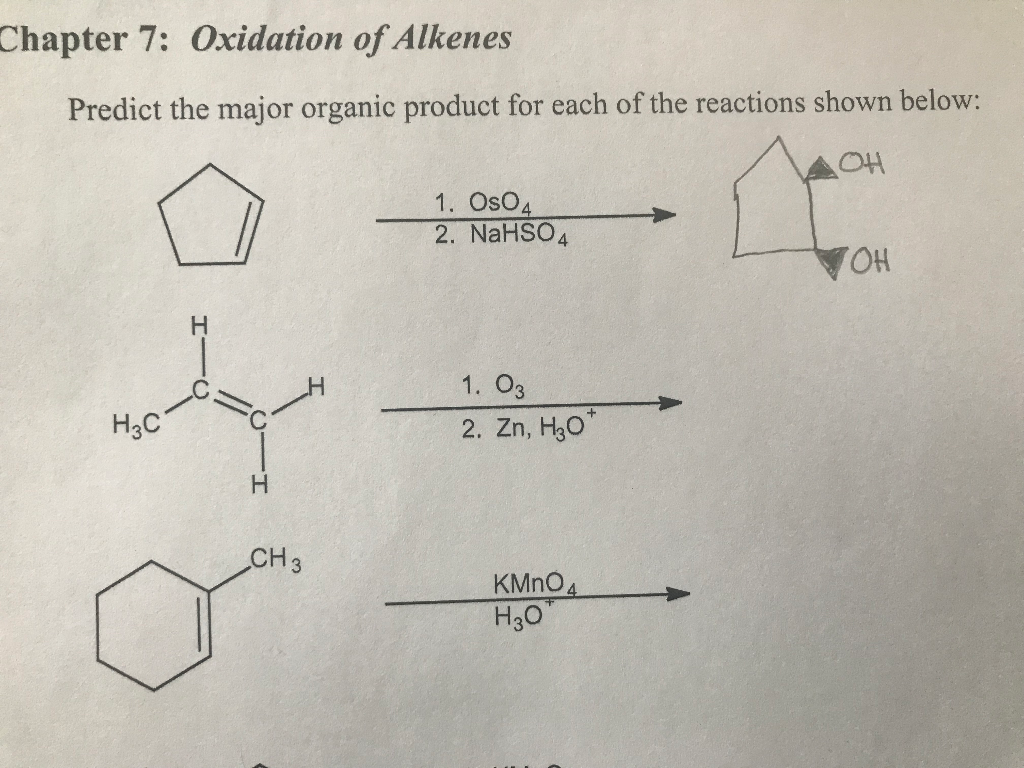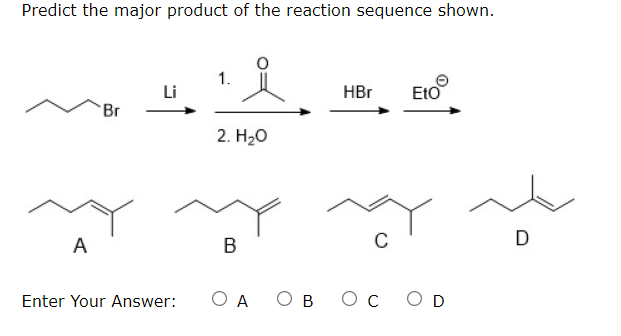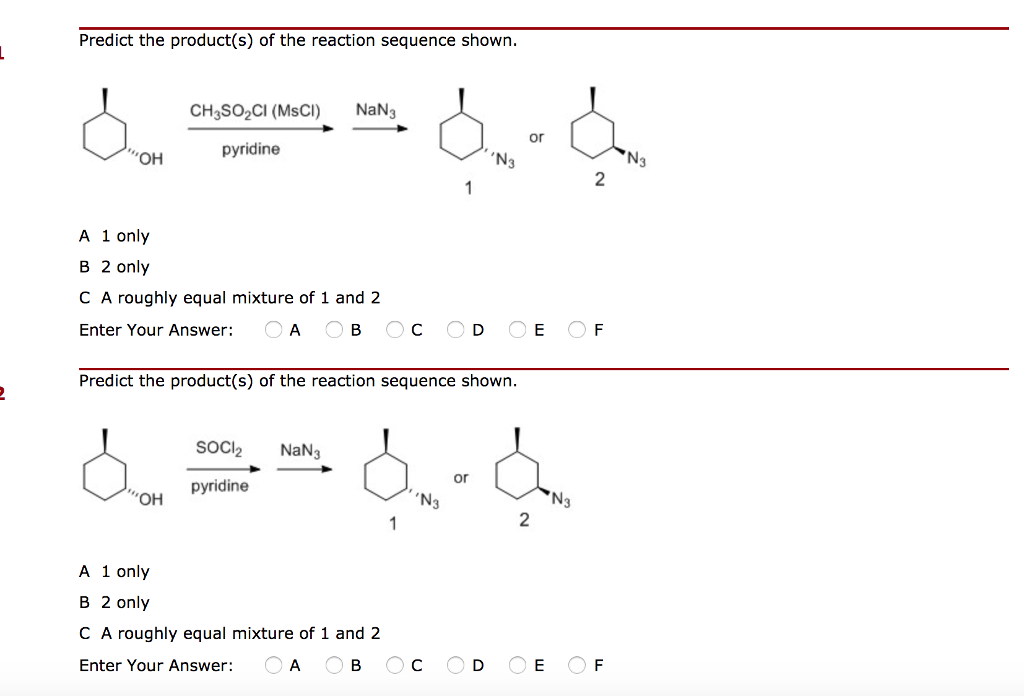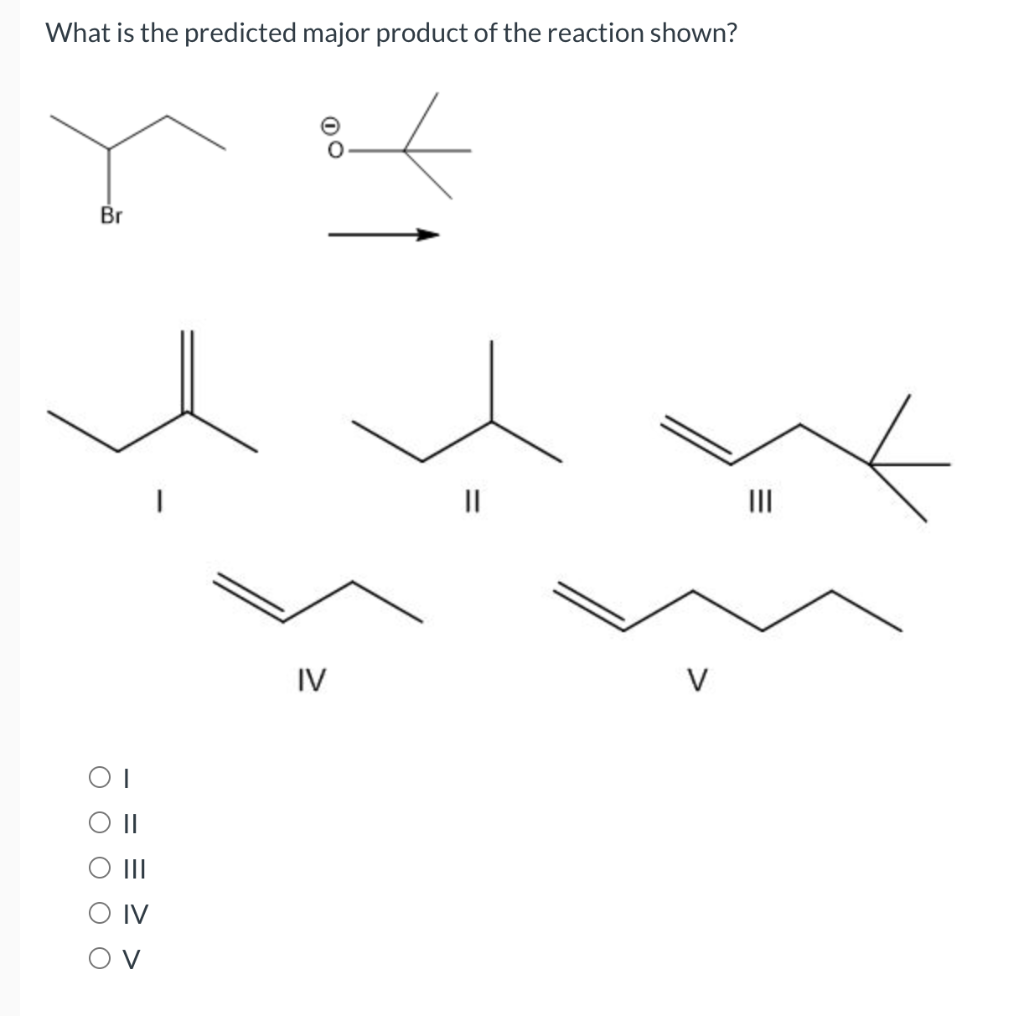A) They are more acidic than alcohols. B) They have lower boiling points than the corresponding alcohol. C) Thiol oxidations proceed very differently than alcohol oxidations. D) All of these. E) Two of these.
Predict the major products of the following reactions, and propos… | Channels for Pearson+
Section: 8.3. Study with Quizlet and memorize flashcards containing terms like Provide the structure of the major organic product of the reaction below., Draw the major organic product generated in the reaction below. Pay particular attention to regio- and stereochemical detail., Draw the major organic product generated in the reaction below.

Source Image: chegg.com
Download Image
17) Consider the one-step conversion of F to G. Given that the reaction is endothermic by 5 kcal/mol and that the energy difference between G and the transition state for the process is 15 kcal/mol, sketch a reaction-energy diagram for this reaction. Make sure to show how the given energy differences are consistent with your sketch.

Source Image: chegg.com
Download Image
Solved Predict the product(s) of the reaction sequence shown | Chegg.com Predict the major organic product for each reaction below. If the reaction does not proceed under the specified conditions, write No Reaction. HO HBr OH HI HI … Pyridine OH PBr 3 OH HBr OH PCl 3. Chem. 234 – Chapter 17 Problem Set Page 4 of 5 7. Predict the products and show the mechanism for the reaction below. 8. Predict the product for

Source Image: chegg.com
Download Image
Predict The Major Product Of The Reaction Shown.
Predict the major organic product for each reaction below. If the reaction does not proceed under the specified conditions, write No Reaction. HO HBr OH HI HI … Pyridine OH PBr 3 OH HBr OH PCl 3. Chem. 234 – Chapter 17 Problem Set Page 4 of 5 7. Predict the products and show the mechanism for the reaction below. 8. Predict the product for Predict the major product for the following reaction. (H3O+, Cl2) A. I B. II C. III D. IV E. none of these. B. II. Predict the major product for the following reaction. (1. … Predict the major product for the following reaction. (ethyl benzoate, ethyl butanoate, 1. NaOCH2CH3 2. H3O+) A. I B. II C. III D. IV E. none of these.
Solved Predict the major product of the following reaction. | Chegg.com
Sep 22, 20222 HgO (s) → O 2 (g) + 2 Hg (l) 2 KClO 3 (s) → 3 O 2 (g) + 2 KCl (s) The potential products in double-replacement reactions are simple to predict; the anions and cations simply exchange. Remember, however, that one of the products must precipitate, otherwise no chemical reaction has occurred. For the reaction between lead (II) nitrate and Solved Predict the major product of the reaction sequence | Chegg.com

Source Image: chegg.com
Download Image
Solved Predict the expected major products of the following | Chegg.com Sep 22, 20222 HgO (s) → O 2 (g) + 2 Hg (l) 2 KClO 3 (s) → 3 O 2 (g) + 2 KCl (s) The potential products in double-replacement reactions are simple to predict; the anions and cations simply exchange. Remember, however, that one of the products must precipitate, otherwise no chemical reaction has occurred. For the reaction between lead (II) nitrate and

Source Image: chegg.com
Download Image
Predict the major products of the following reactions, and propos… | Channels for Pearson+ A) They are more acidic than alcohols. B) They have lower boiling points than the corresponding alcohol. C) Thiol oxidations proceed very differently than alcohol oxidations. D) All of these. E) Two of these.

Source Image: pearson.com
Download Image
Solved Predict the product(s) of the reaction sequence shown | Chegg.com 17) Consider the one-step conversion of F to G. Given that the reaction is endothermic by 5 kcal/mol and that the energy difference between G and the transition state for the process is 15 kcal/mol, sketch a reaction-energy diagram for this reaction. Make sure to show how the given energy differences are consistent with your sketch.

Source Image: chegg.com
Download Image
Organic Chemistry. Predict the Major Product. | Organic chemistry, Teaching chemistry, Organic chemistry study Negishi Coupling Reaction 16m. Buchwald-Hartwig Amination Reaction 19m. Eglinton Reaction 17m. Predict the major products of the following reactions. Include stereochemistry where applicable. a. 1−methylcyclohexene + BH3⋅THF then H2O2, OH-.

Source Image: pinterest.com
Download Image
Solved Predict the major product of the following reaction | Chegg.com Predict the major organic product for each reaction below. If the reaction does not proceed under the specified conditions, write No Reaction. HO HBr OH HI HI … Pyridine OH PBr 3 OH HBr OH PCl 3. Chem. 234 – Chapter 17 Problem Set Page 4 of 5 7. Predict the products and show the mechanism for the reaction below. 8. Predict the product for

Source Image: chegg.com
Download Image
Solved What is the predicted major product of the reaction | Chegg.com Predict the major product for the following reaction. (H3O+, Cl2) A. I B. II C. III D. IV E. none of these. B. II. Predict the major product for the following reaction. (1. … Predict the major product for the following reaction. (ethyl benzoate, ethyl butanoate, 1. NaOCH2CH3 2. H3O+) A. I B. II C. III D. IV E. none of these.

Source Image: chegg.com
Download Image
Solved Predict the expected major products of the following | Chegg.com
Solved What is the predicted major product of the reaction | Chegg.com Section: 8.3. Study with Quizlet and memorize flashcards containing terms like Provide the structure of the major organic product of the reaction below., Draw the major organic product generated in the reaction below. Pay particular attention to regio- and stereochemical detail., Draw the major organic product generated in the reaction below.
Solved Predict the product(s) of the reaction sequence shown | Chegg.com Solved Predict the major product of the following reaction | Chegg.com Negishi Coupling Reaction 16m. Buchwald-Hartwig Amination Reaction 19m. Eglinton Reaction 17m. Predict the major products of the following reactions. Include stereochemistry where applicable. a. 1−methylcyclohexene + BH3⋅THF then H2O2, OH-.